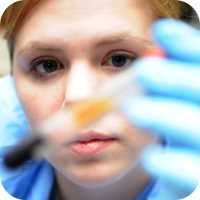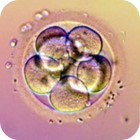
If it is taking you a long time to get pregnant, it is natural to start worrying that there may be something wrong and you may start thinking about needing to see your doctor. But how long should you wait before you seek fertility help?
This depends upon both how long you have been trying to get pregnant and your medical history. I’ll explain what your doctor is looking for and when you should go to see them.
Please note that it is best for couples to see their doctor together for fertility help, so unless I say otherwise, the following applies to both men and women.
When to See a Doctor Before Trying to Get Pregnant
You Have a Long-Term Medical Condition
Also known as chronic conditions, long-term medical conditions can make getting pregnant more difficult and can cause complications once you are pregnant. Examples of long-term medical conditions include: diabetes, epilepsy, depression, asthma, lupus, high blood pressure, blood clotting disorders or rheumatoid arthritis.
You Are Taking Medicine On a Regular Basis
Certain prescription drugs can affect both your chances of getting pregnant and the health of your baby once you become pregnant. Advise your doctor before you try to get pregnant and they may be able to switch your medications to ones that do not affect pregnancy. Always read the drug label and information leaflet, and if in doubt, ask your pharmacist or doctor. For more information on prescription medications and their impact on fertility and the health of your baby, please check out the section: Have Your Prescription Medication Reviewed Before Trying to Getting Pregnant
You Have a Genetic Disorder
See your doctor before trying to get pregnant if you or anyone in your close family has a genetic or inherited disorder. Examples of genetic disorders include: cystic fibrosis, sickle-cell anaemia or thalassaemia. Like long term medical conditions, genetic disorders can make it difficult for you to conceive and can cause complications once you are pregnant.
You Have Not Been Vaccinated Against Rubella
Rubella, also known as German Measles, is a relatively common illness that most people typically get when they are children, but if you get it during pregnancy, the disease can have severe effects on the developing baby. Most people are vaccinated against this as a child, but if you haven’t been vaccinated or you are unsure if you have, you should speak to your doctor so they can check your vaccination records. You cannot have the vaccine whilst pregnant and so I advise you get it done at least one month before you start trying to get pregnant.
For more information on what to consider before trying to get pregnant, check out my Pre-Pregnancy Checklist for couples.
When to See a Doctor If You Are Not Pregnant After 6 Months
There Is a Potential Infertility Cause
Certain conditions may affect your chances of getting pregnant, but your doctor won’t refer you to a specialist until you have been trying for 6 months or longer. These conditions can include: a severe groin or testicle injury in the past if you are a man. Or if you are a woman you have or have had polycystic ovaries, fibroids, endometriosis or thyroid disease.
You Have Previously Had Surgery On or Near Your Genitals
If you have had an operation in the past on or near your genitals (and if you are a woman, also your pelvis or abdomen), then there is a chance that it is interfering with your fertility. Often there is no obvious sign that the surgery is causing you problems getting pregnant, so you will need to ask your doctor and if they think it appropriate they will send you for tests. You may also want to check out the section Surgical Causes of Female Infertility or Male Ejaculatory Duct Obstruction for more information.
You’ve Previously Had a Sexually Transmitted Disease (STD)
Some sexually transmitted infections (for example: chlamydia) can cause permanent infertility in both women and men. If you have previously had an STD, even if it has been cured, see your doctor for fertility help after 6 months of trying for a baby. The good news is that often, the lasting damage from STDs can be treated.
You Are a Woman with Irregular Periods
Having irregular periods makes it difficult to predict when you are at your most fertile and can reduce the number of times you can get pregnant every year. An irregular period cycle is when:
- You have a period every 21 days or less
- You have a period every 35 days or more
- Your cycle usually varies in length by more than 8 days
You Are a Woman Who Is 36 Or Older
Starting from the age of 36, the woman’s chances of getting pregnant significantly reduce the older she gets. If you are a woman, are over 35, and have been trying for a baby for six months or more, you should see your doctor for fertility help so they can advise you on how to improve your chances of getting pregnant and what other options are available to you.
For women of 45 or more, the chances of having a child naturally is around 2%. Not impossible, but very unlikely. Fertility treatment may be able to assist you at this age and your doctor can advise you on what options will best work for you.
When to See a Doctor If You Are Not Pregnant After a Year
Statistically speaking 1 in 5 healthy couples don’t conceive in the first year of trying for a baby. However, if you have been trying to conceive unsuccessfully for a year or more, you should definitely see your doctor to get advice and possibly to get tested to see if there might be a problem.
Further Advice About Visiting Your Doctor for Fertility Help
Seeing a doctor about difficulties getting pregnant can be embarrassing for some people. Knowing more about the process can help to prepare you. If you would like to know what will happen when you visit your doctor, please check out the section: What to Expect When Seeing Your Doctor About Problems Conceiving
In order to find out what might be wrong, your doctor will need to ask you some questions. If you would like to know what these questions are so you understand why they are being asked and help prepare you to answer them, please check out the section: Questions Your Doctor May Ask You About Getting Pregnant
It can seem like fertility and pregnancy have their own language. To help you understand the words and terms that are used, please check out the section: Jargon Buster Your Guide to Common Fertility Terminology
Links to Popular Related Pages









